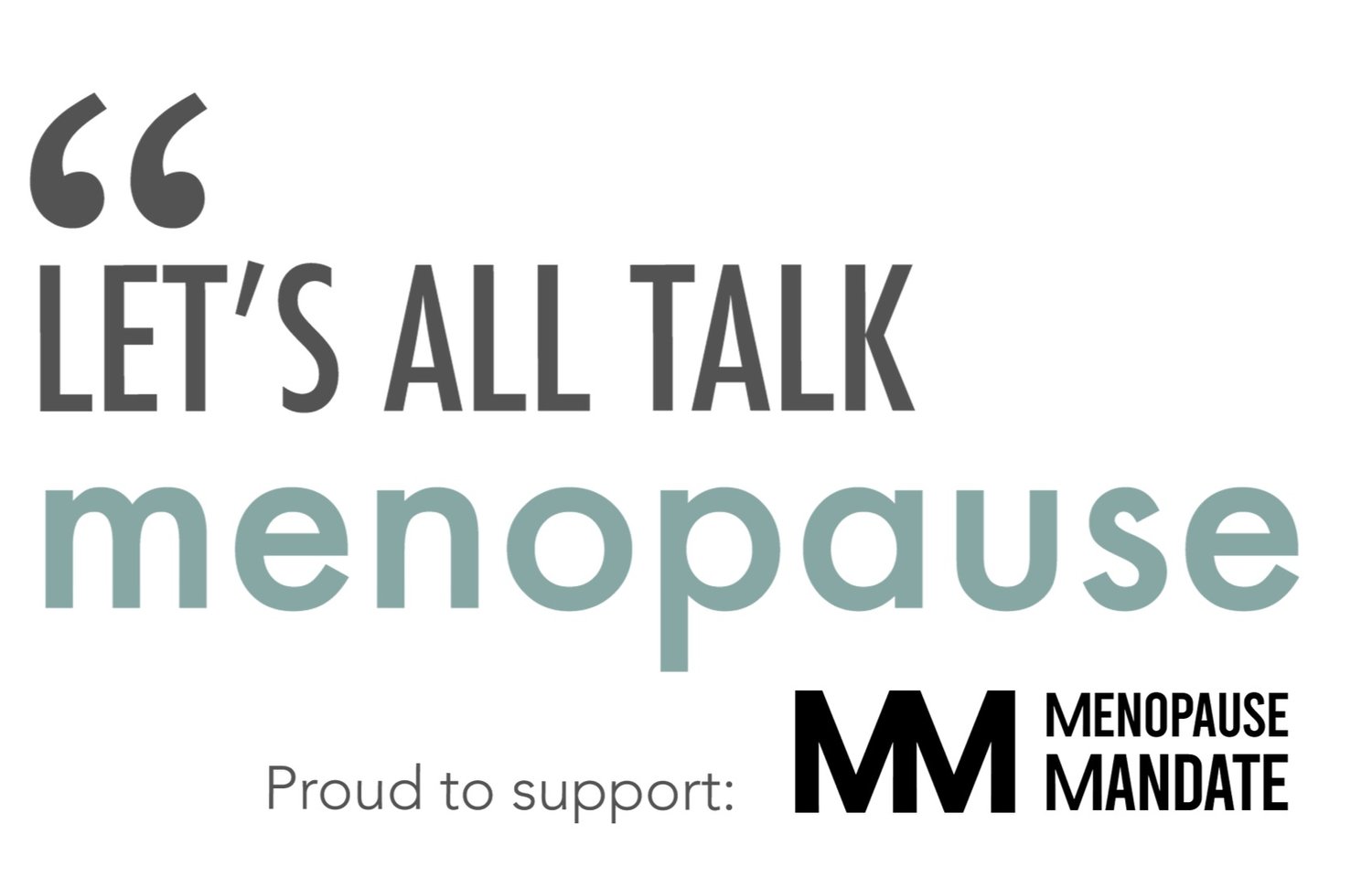“Look at the bigger picture”
We were delighted to be joined by Dr Anne Henderson for a session about managing your menopause journey. Dr Henderson is a very experienced consultant gynaecologist and BMS registered menopause specialist.
She began by telling us about the recent renaissance in menopause, and how there is a huge interest from all directions. There are newer, younger doctors, GP ‘s and so on coming, to the menopause forums. This is great news to hear!
Interestingly, Dr Henderson mentions how menopause journeys PRE and POST covid have developed.
During covid, women had the opportunity and time to research the internet. There is absolutely amazing advice, information and support online for women, both in conventional media, social media and mainstream media and though not recommended from a doctor’s perspective for medicine….for menopause it’s been a game changer. If women are getting their advice from a good reliable source - that's scientifically referenced or supported by the British Menopause Society…you can't go far wrong.
Incidentally a recent survey by Menopause Mandate found that 48% of women learnt about menopause through social media.
Optimise fitness & nutrition
Now, if you’re not sure where to start with your menopause journey, make sure that you've optimised fitness and nutrition. It’s easy to say and hard to do, especially if you're feeling run down with menopausal symptoms; but you must start somewhere and getting nutrition back on track is key. Dr Henderson says to try out things like intermittent fasting, or the Zoe Programme which looks at your gut probiotic health. Also look at increasing protein intake, these are three really key things.
Things that you got away with when you were 20 or 30, or even 40… you won't get away with when you're 50 or 60. You can't drink in excess and get away with it, you can't fail to exercise and get away with it, you cannot eat an unhealthy diet and get away with it or not get a decent amount of sleep. These things will catch up with you.
So, “whatever you plan to look at, you have to look at the bigger picture.”
Fasting is not necessarily designed just for weight loss
It’s actually about reducing insulin resistance. Insulin resistance is the thing that you want to avoid because it's linked to everything negative about health. So high levels of insulin are everybody's enemy, and the way that you avoid that is you prevent insulin resistance, and that can be done by altering your diet.
The conventional way to do it is by reducing refined carbohydrates and sugars. But the best way forward is to look at a period of fasting.
“For 12 hours a day or 14 hours a day or 16 hours a day, you don't eat. It might sound radical. But virtually everybody who's tried it says that after a few weeks it becomes second nature.”
Metabolic rate is a huge factor in weight stability
Everybody loses muscle mass, but minimising muscle loss is the key, because muscle is what drives your metabolic rate - and the metabolic rate is a huge factor in weight stability. If your metabolic rate drops, you're going to put on weight. If it peaks, you'll either lose or maintain weight. What's happening surreptitiously during perimenopause is women are eating the same as they've always done, they're doing the same exercise. But below the surface, the silent enemy is the fact that your oestrogen and testosterone levels are dropping year on year. You don't know about it and you carry on doing exactly what you've done. Only this time eating less and exercising more will not work. You will become tired and exhausted; you’ll give up and the diet will fail.
So, why are you losing muscle mass and why is your metabolic rate falling? Menopause… the lack of oestrogen and the lack of testosterone. The minute you replace those levels, and live sensibly, your weight will stabilise, your muscle will build and your body fat percentage will reduce.
Why menopause is life changing
There are at least 37 symptoms associated with menopause and there's not a single organ in the body that doesn't have oestrogen receptors. That’s why menopause is life changing. You could pretty much think of any problem that a woman 45 - 55 has had and there is probably, in some way, a connection to menopause. So, if you replace the hormone that is causing that deficiency, which is primarily oestrogen, it's not surprising that those problems often improve. They might not go completely, and it’s certainly not a cure but it's a good start, and it's based on science and logic. If it's done properly, it can be absolutely wonderful for most women.
Dr Henderson said her one main takeaway from this session would be to educate ourselves. This session alone was full of knowledge and expertise and she has done a great job explaining how menopause is connected to lots of issues we deal with as we get older and how to potentially prevent them. I will certainly be looking at trying to improve my gut health and seriously investigate intermittent fasting rather than just as a passing phase.
“Self-educate, self-inform, and then you'll be self-confident when you go to speak to somebody and you're much more likely to end up with the with the treatment that is going to work for you in the long-term.”
To watch Dr Henderson’s talk again, head here – worth a watch if you’re over 40, or menopausal and looking for ways to improve quality of life.

